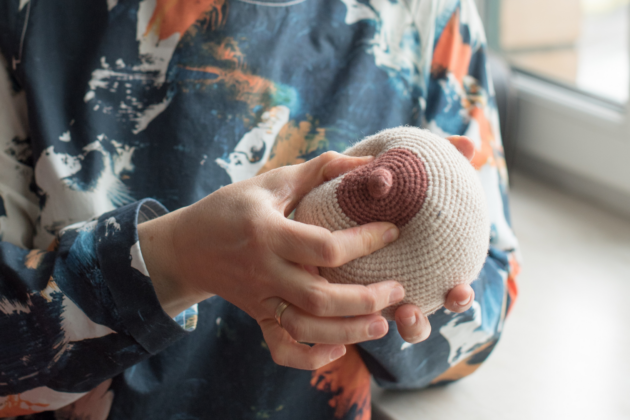What to Drink to Increase Breast Milk Supply
You have already committed to breastfeeding your baby—congratulations on an excellent first choice! Your baby will receive great food to eat in its early life.
As your baby grows, they need more nutrients and fluid volume with each feeding. It’s natural to worry about whether you’ll have enough milk supply to last for the first several months of your baby’s life.
So, what can you do if your baby still seems hungry or thirsty after feeding? Examples of drinks that can help increase breast milk include coconut water, coconut milk, lactation teas, electrolyte drinks, and fenugreek.
Keep reading to see what else you can try to drink to increase supply.

Get Postpartum Support from a Registered Dietitian
Insurance Accepted: 90% of Zaya Care patients pay $0 for visits with an RD
Drinks that can increase breast milk supply
After giving birth, you will transition to a postpartum diet that focuses on the foods and drinks that best help your body recover from childbirth and that support breastfeeding.
Breast milk contains 12 percent solids and 88 percent water. This means that your fluid intake matters a lot in how much milk you produce. The extra fluid you drink should be nourishing, healthy for you and your baby, and something you love to drink.
Many women swear by substances known as natural galactagogues which are thought to increase breast milk production. These are often herbs that can be mixed into teas or other drinks.
Let’s look at some galactagogues and other drinks that may help your baby gain weight and drink freely when nursing:
1) Coconut water
Coconut water is the liquid found inside unripe coconuts before the nutrients become coconut flesh. It’s rich in electrolytes, including magnesium, potassium, and carbohydrates. Anytime you drink something with these kinds of electrolytes in it, your body is more likely to hold onto the liquid so your baby can use it.
2) Coconut milk
Coconut milk is richer in fat than coconut water. It’s great for smoothies and for making ice cream. Coconut milk also contains natural antimicrobial agents, and fats to help your baby gain weight.
Make sure to drink both coconut water and milk reasonably as they can mean you’re taking in too much potassium or fat.
3) Lactation teas/herbal teas
Lactation teas generally contain herbs known to be galactagogues. Some of these teas have ginger, moringa, coconut milk/water, and Goat’s rue and can be put into teas or drink mixes to aid in lactation. You can take a tea with just one ingredient; however, most teas have a variety of herbs mixed within them.
4) Lactation smoothies
Lactation smoothies often have some galactagogue-like herbs but make use of coconut milk to add substance to the drink. Smoothies and shakes can be made with ice cream that mostly contains coconut milk.
>> Learn more: How to induce lactation
5) Electrolyte drinks
Just as coconut juice has electrolytes to enhance water intake, electrolyte drinks can also help you gain fluids. Again, when your body absorbs electrolytes, water must go with it to offset the electrolyte intake.
One example is Body Armor sports drinks, which contain a refreshing blend of healthy electrolytes. The benefit of drinks like Body Armor is that they taste great, which encourages healthy consumption of fluid daily.

Get Postpartum Support from a Registered Dietitian
Insurance Accepted: 90% of Zaya Care patients pay $0 for visits with an RD
6) Milk
Milk contains milk protein and easily digestible milk sugar. It’s a good option if you aren’t lactose intolerant. While cows’ milk isn’t good for babies (until they are about one year of age), your body can “recycle” the protein into forms your baby will easily tolerate.
Milk is one of the best drinks for you when you are nursing because it has both protein and carbs.
7) Fruit juices
Fruit juices are refreshing and contain healthy carbs and vitamins you need to nourish your baby. Remember that you need liquids, energy, and vitamins for you and your baby to remain healthy.
Fruit juices should not be the only thing you drink, however, because they contain a lot of sugar and calories you may not need.
8) Fenugreek
Fenugreek is one of the most common galactagogues. You can put it in a tea by itself or with other herbal remedies. It is also baked into lactation cookies used to enhance the production of breast milk.
9) Barley water
Barley water is a drink made from barley grain. Some of these drinks also have lemon or other flavorings. They are great because you can get some complex carbohydrates but few simple carbs (sugar). It can be used to give you the energy you need without causing blood sugar spikes.
With all of those complex carbohydrates, you’ll provide plenty of food energy for your baby. The best news is that you can make it yourself with one cup of barley, two quarts of water, and honey or lemon to taste.
10) Brewer’s yeast & malted barley drinks
Brewer’s yeast and malted barley drinks are related to barley water. Brewer’s yeast water is made from the kind of brewer’s yeast that has the bitterness removed. This water is high in B vitamins, protein, selenium, potassium, zinc, iron, magnesium, and chromium.
Malted barley involves soaking the grain until it germinates, releasing the sugars. This is the kind of “malt” used to make beer; however, neither of these beverages has alcohol in them. Both are good probiotic drinks.
11) Fennel seed water
Fennel is a healthy vegetable; the seeds are also very healthy for you. Fennel is a galactagogue. It is best taken as the seed steeped in water before flavoring it with honey or another preferred sweetener.
Experts do not recommend eating a lot of the seeds plain. The seeds contain phytoestrogen that likely helps to enhance your breastmilk production by mimicking estrogen.
12) Beetroot juice
Beetroot juice has many nutrients and is naturally sweet. There are electrolytes like potassium and numerous vitamins. There is evidence that drinking this juice during lactation helps your baby like vegetables more when they are later introduced.
13) Carrot juice
Carrots are like beetroot juice. They are loaded with vitamins C, A, and many phytonutrients. Carrot juice is refreshing and adds components to your breast milk that increase the quality of the milk itself.
14) Green smoothies
Green smoothies are made from a variety of leafy green vegetables, including spinach and kale. You can make smoothies that are different for every day and can add iron, vitamin C, and folate to your diet. When you consume these foods, your baby gets the nutrients as well.
15) Bone broth
Bone broth is easily digested and high in protein. The gelatin in bone broth has collagen for bones and tissue healing. Your baby also gets this substance for their connective tissue and other structures.
Thyroid hormones are also produced in greater numbers when you drink bone broth, making this a great thing to drink in the postpartum period even if you don’t breastfeed.
>> Learn more: How to increase your breast milk supply in one day or overnight
16) Dandelion root tea
Dandelions are edible and the tea made from the roots is delicious and nutritious. The tea is high in potassium, which is one of the best electrolytes to lower blood pressure and enhance kidney function. Dandelions have polysaccharide substances that reduce the stress on the liver.
17) Alfalfa tea
Alfalfa tea is another plant-based tea that offers many different vitamins and minerals you need to augment your diet while breastfeeding. It’s high in vitamin K, vitamin C, and many B vitamins. It is also high in phytoestrogens, which may make it a good galactagogue.
18) Goat’s Rue tea
Goat’s Rue is an herbal supplement you can make into tea. It has centuries of experience as a galactagogue but also helps protect your liver and stimulate your pancreatic insulin-producing cells. It can help bring on breast milk; however, too much of it is a diuretic, so you could lose fluid if used in excess.

Get Postpartum Support from a Registered Dietitian
Insurance Accepted: 90% of Zaya Care patients pay $0 for visits with an RD
Drinks to avoid if you’re trying to increase breast milk supply
You want to be able to keep a steady fluid intake with a wide selection of nutritious beverages, including those that are known to be galactagogues.
Some fluids will work against you, however. You’ll want to stay away from those. Foods or liquids that are dehydrating or have too many side effects should be avoided when you are trying to gain more breast milk as they can cause issues such as clogged milk ducts.
Let’s look at which things you should avoid eating or drinking while breastfeeding:
1) Alcohol
Alcohol is dangerous to growing babies, so drinking during pregnancy is not recommended. After you give birth, you still shouldn’t drink alcohol if you choose to breastfeed. Alcohol will damage your baby’s growing brain even after birth.
When you drink alcohol, it shows up in your breast milk and can literally intoxicate your baby. Alcohol is also very dehydrating, so it won’t help you gain fluids or enhance your breast milk production.
>> Learn more: Foods to avoid while breastfeeding
2) Caffeine
Caffeine is also dehydrating and will show up in breast milk. If you choose caffeinated beverages or eat foods that have caffeine in them (cocoa and chocolate), you will naturally have caffeine in your breast milk. Some moms have reported that their babies are jittery or fussy if they drink coffee and nurse afterward.
3) Artificial Sweeteners
Artificial sweeteners do not necessarily reduce the amount of breast milk you make. The main problem is just that they show up in your breast milk after you drink or eat artificially sweetened food.
Studies show that acesulfame-potassium, sucralose, and saccharin all can be found in breast milk. These sweeteners aren’t known to be harmful, but they don’t add benefits to your baby’s health and wellness, and this status could change as we learn more about their effects.
4) Herbal Teas
Herbal teas are good for you, right? Not necessarily.
Herbs can be strong medicine, causing problems or curing them, depending on the herb. There are some herbal remedies that you shouldn’t drink while nursing if you can avoid them:
- Sage tea. Sage is used in weaning your baby off the breast; it is known to reduce your breast milk quantity.
- Peppermint tea. Peppermint is safe but can reduce the letdown reflex, making it harder to nurse your baby.
- Parsley tea. Some studies show that parsley reduces the degree of milk flow you have when nursing.
- Oregano tea. Oregano oil is good for yeast infections of the nipple when applied topically. When you drink the tea, however, you expose your baby to too much of this otherwise safe herb, leading to GI upset or allergic reactions in your nursing baby.
- Thyme. Thyme receives mixed reviews. Some say it increases milk production, while others say it decreases it. One study was performed on cows, showing no effect on the amount of milk produced.
- Jasmine tea. Jasmine is used for blocking lactation, so it shouldn’t be used if you want to increase your milk supply.
- Green tea. Green tea is the same substance as black tea, but it’s been treated differently. It still contains caffeine, which you shouldn’t consume if you want a less irritable baby. Caffeine increases irritability in babies.
How to tell if you need to increase your breast milk supply
How can you tell if you need to increase your supply of breast milk? There are several clues to help you decide if you’re giving your baby enough:
- Your baby is losing weight
- Your baby seems fussy after feeding
- The baby seems irritable when feeding (sucking very hard)
- Your baby is feeding at intervals that are closer than they have been
- Your letdown reflex is not as strong
- Your breasts feel very “empty” after a feeding
- Your breasts don’t leak as much
If you notice any of these signs and feel like you may need more milk, try consuming something with a galactagogue in it, and see a lactation specialist if you still have difficulty.
How working with a Registered Dietitian can help
A Registered Dietitian (RD) can help you incorporate the drinks mentioned above in your diet healthily and understand what changes you need to make to increase your breast milk.
They can help you develop a breastfeeding meal plan and make adjustments over time based on how your body responds and your baby’s needs.
Now, you may be thinking that a dietitian is going to be too expensive. However, most dietitian visits are covered by health insurance. In fact, 90% of patients who work with an RD through us here at Zaya Care pay $0 for one-on-one nutritional counseling.
If you want professional help, check out our dietitian search tool to see providers who accept your insurance and preferred visit type.

Get Postpartum Support from a Registered Dietitian
Insurance Accepted: 90% of Zaya Care patients pay $0 for visits with an RD
You have already committed to breastfeeding your baby—congratulations on an excellent first choice! Your baby will receive great food to eat in its early life.
As your baby grows, they need more nutrients and fluid volume with each feeding. It’s natural to worry about whether you’ll have enough milk supply to last for the first several months of your baby’s life.
So, what can you do if your baby still seems hungry or thirsty after feeding? Examples of drinks that can help increase breast milk include coconut water, coconut milk, lactation teas, electrolyte drinks, and fenugreek.
Keep reading to see what else you can try to drink to increase supply.

Get Postpartum Support from a Registered Dietitian
Insurance Accepted: 90% of Zaya Care patients pay $0 for visits with an RD
Drinks that can increase breast milk supply
After giving birth, you will transition to a postpartum diet that focuses on the foods and drinks that best help your body recover from childbirth and that support breastfeeding.
Breast milk contains 12 percent solids and 88 percent water. This means that your fluid intake matters a lot in how much milk you produce. The extra fluid you drink should be nourishing, healthy for you and your baby, and something you love to drink.
Many women swear by substances known as natural galactagogues which are thought to increase breast milk production. These are often herbs that can be mixed into teas or other drinks.
Let’s look at some galactagogues and other drinks that may help your baby gain weight and drink freely when nursing:
1) Coconut water
Coconut water is the liquid found inside unripe coconuts before the nutrients become coconut flesh. It’s rich in electrolytes, including magnesium, potassium, and carbohydrates. Anytime you drink something with these kinds of electrolytes in it, your body is more likely to hold onto the liquid so your baby can use it.
2) Coconut milk
Coconut milk is richer in fat than coconut water. It’s great for smoothies and for making ice cream. Coconut milk also contains natural antimicrobial agents, and fats to help your baby gain weight.
Make sure to drink both coconut water and milk reasonably as they can mean you’re taking in too much potassium or fat.
3) Lactation teas/herbal teas
Lactation teas generally contain herbs known to be galactagogues. Some of these teas have ginger, moringa, coconut milk/water, and Goat’s rue and can be put into teas or drink mixes to aid in lactation. You can take a tea with just one ingredient; however, most teas have a variety of herbs mixed within them.
4) Lactation smoothies
Lactation smoothies often have some galactagogue-like herbs but make use of coconut milk to add substance to the drink. Smoothies and shakes can be made with ice cream that mostly contains coconut milk.
>> Learn more: How to induce lactation
5) Electrolyte drinks
Just as coconut juice has electrolytes to enhance water intake, electrolyte drinks can also help you gain fluids. Again, when your body absorbs electrolytes, water must go with it to offset the electrolyte intake.
One example is Body Armor sports drinks, which contain a refreshing blend of healthy electrolytes. The benefit of drinks like Body Armor is that they taste great, which encourages healthy consumption of fluid daily.

Get Postpartum Support from a Registered Dietitian
Insurance Accepted: 90% of Zaya Care patients pay $0 for visits with an RD
6) Milk
Milk contains milk protein and easily digestible milk sugar. It’s a good option if you aren’t lactose intolerant. While cows’ milk isn’t good for babies (until they are about one year of age), your body can “recycle” the protein into forms your baby will easily tolerate.
Milk is one of the best drinks for you when you are nursing because it has both protein and carbs.
7) Fruit juices
Fruit juices are refreshing and contain healthy carbs and vitamins you need to nourish your baby. Remember that you need liquids, energy, and vitamins for you and your baby to remain healthy.
Fruit juices should not be the only thing you drink, however, because they contain a lot of sugar and calories you may not need.
8) Fenugreek
Fenugreek is one of the most common galactagogues. You can put it in a tea by itself or with other herbal remedies. It is also baked into lactation cookies used to enhance the production of breast milk.
9) Barley water
Barley water is a drink made from barley grain. Some of these drinks also have lemon or other flavorings. They are great because you can get some complex carbohydrates but few simple carbs (sugar). It can be used to give you the energy you need without causing blood sugar spikes.
With all of those complex carbohydrates, you’ll provide plenty of food energy for your baby. The best news is that you can make it yourself with one cup of barley, two quarts of water, and honey or lemon to taste.
10) Brewer’s yeast & malted barley drinks
Brewer’s yeast and malted barley drinks are related to barley water. Brewer’s yeast water is made from the kind of brewer’s yeast that has the bitterness removed. This water is high in B vitamins, protein, selenium, potassium, zinc, iron, magnesium, and chromium.
Malted barley involves soaking the grain until it germinates, releasing the sugars. This is the kind of “malt” used to make beer; however, neither of these beverages has alcohol in them. Both are good probiotic drinks.
11) Fennel seed water
Fennel is a healthy vegetable; the seeds are also very healthy for you. Fennel is a galactagogue. It is best taken as the seed steeped in water before flavoring it with honey or another preferred sweetener.
Experts do not recommend eating a lot of the seeds plain. The seeds contain phytoestrogen that likely helps to enhance your breastmilk production by mimicking estrogen.
12) Beetroot juice
Beetroot juice has many nutrients and is naturally sweet. There are electrolytes like potassium and numerous vitamins. There is evidence that drinking this juice during lactation helps your baby like vegetables more when they are later introduced.
13) Carrot juice
Carrots are like beetroot juice. They are loaded with vitamins C, A, and many phytonutrients. Carrot juice is refreshing and adds components to your breast milk that increase the quality of the milk itself.
14) Green smoothies
Green smoothies are made from a variety of leafy green vegetables, including spinach and kale. You can make smoothies that are different for every day and can add iron, vitamin C, and folate to your diet. When you consume these foods, your baby gets the nutrients as well.
15) Bone broth
Bone broth is easily digested and high in protein. The gelatin in bone broth has collagen for bones and tissue healing. Your baby also gets this substance for their connective tissue and other structures.
Thyroid hormones are also produced in greater numbers when you drink bone broth, making this a great thing to drink in the postpartum period even if you don’t breastfeed.
>> Learn more: How to increase your breast milk supply in one day or overnight
16) Dandelion root tea
Dandelions are edible and the tea made from the roots is delicious and nutritious. The tea is high in potassium, which is one of the best electrolytes to lower blood pressure and enhance kidney function. Dandelions have polysaccharide substances that reduce the stress on the liver.
17) Alfalfa tea
Alfalfa tea is another plant-based tea that offers many different vitamins and minerals you need to augment your diet while breastfeeding. It’s high in vitamin K, vitamin C, and many B vitamins. It is also high in phytoestrogens, which may make it a good galactagogue.
18) Goat’s Rue tea
Goat’s Rue is an herbal supplement you can make into tea. It has centuries of experience as a galactagogue but also helps protect your liver and stimulate your pancreatic insulin-producing cells. It can help bring on breast milk; however, too much of it is a diuretic, so you could lose fluid if used in excess.

Get Postpartum Support from a Registered Dietitian
Insurance Accepted: 90% of Zaya Care patients pay $0 for visits with an RD
Drinks to avoid if you’re trying to increase breast milk supply
You want to be able to keep a steady fluid intake with a wide selection of nutritious beverages, including those that are known to be galactagogues.
Some fluids will work against you, however. You’ll want to stay away from those. Foods or liquids that are dehydrating or have too many side effects should be avoided when you are trying to gain more breast milk as they can cause issues such as clogged milk ducts.
Let’s look at which things you should avoid eating or drinking while breastfeeding:
1) Alcohol
Alcohol is dangerous to growing babies, so drinking during pregnancy is not recommended. After you give birth, you still shouldn’t drink alcohol if you choose to breastfeed. Alcohol will damage your baby’s growing brain even after birth.
When you drink alcohol, it shows up in your breast milk and can literally intoxicate your baby. Alcohol is also very dehydrating, so it won’t help you gain fluids or enhance your breast milk production.
>> Learn more: Foods to avoid while breastfeeding
2) Caffeine
Caffeine is also dehydrating and will show up in breast milk. If you choose caffeinated beverages or eat foods that have caffeine in them (cocoa and chocolate), you will naturally have caffeine in your breast milk. Some moms have reported that their babies are jittery or fussy if they drink coffee and nurse afterward.
3) Artificial Sweeteners
Artificial sweeteners do not necessarily reduce the amount of breast milk you make. The main problem is just that they show up in your breast milk after you drink or eat artificially sweetened food.
Studies show that acesulfame-potassium, sucralose, and saccharin all can be found in breast milk. These sweeteners aren’t known to be harmful, but they don’t add benefits to your baby’s health and wellness, and this status could change as we learn more about their effects.
4) Herbal Teas
Herbal teas are good for you, right? Not necessarily.
Herbs can be strong medicine, causing problems or curing them, depending on the herb. There are some herbal remedies that you shouldn’t drink while nursing if you can avoid them:
- Sage tea. Sage is used in weaning your baby off the breast; it is known to reduce your breast milk quantity.
- Peppermint tea. Peppermint is safe but can reduce the letdown reflex, making it harder to nurse your baby.
- Parsley tea. Some studies show that parsley reduces the degree of milk flow you have when nursing.
- Oregano tea. Oregano oil is good for yeast infections of the nipple when applied topically. When you drink the tea, however, you expose your baby to too much of this otherwise safe herb, leading to GI upset or allergic reactions in your nursing baby.
- Thyme. Thyme receives mixed reviews. Some say it increases milk production, while others say it decreases it. One study was performed on cows, showing no effect on the amount of milk produced.
- Jasmine tea. Jasmine is used for blocking lactation, so it shouldn’t be used if you want to increase your milk supply.
- Green tea. Green tea is the same substance as black tea, but it’s been treated differently. It still contains caffeine, which you shouldn’t consume if you want a less irritable baby. Caffeine increases irritability in babies.
How to tell if you need to increase your breast milk supply
How can you tell if you need to increase your supply of breast milk? There are several clues to help you decide if you’re giving your baby enough:
- Your baby is losing weight
- Your baby seems fussy after feeding
- The baby seems irritable when feeding (sucking very hard)
- Your baby is feeding at intervals that are closer than they have been
- Your letdown reflex is not as strong
- Your breasts feel very “empty” after a feeding
- Your breasts don’t leak as much
If you notice any of these signs and feel like you may need more milk, try consuming something with a galactagogue in it, and see a lactation specialist if you still have difficulty.
How working with a Registered Dietitian can help
A Registered Dietitian (RD) can help you incorporate the drinks mentioned above in your diet healthily and understand what changes you need to make to increase your breast milk.
They can help you develop a breastfeeding meal plan and make adjustments over time based on how your body responds and your baby’s needs.
Now, you may be thinking that a dietitian is going to be too expensive. However, most dietitian visits are covered by health insurance. In fact, 90% of patients who work with an RD through us here at Zaya Care pay $0 for one-on-one nutritional counseling.
If you want professional help, check out our dietitian search tool to see providers who accept your insurance and preferred visit type.

Get Postpartum Support from a Registered Dietitian
Insurance Accepted: 90% of Zaya Care patients pay $0 for visits with an RD
















